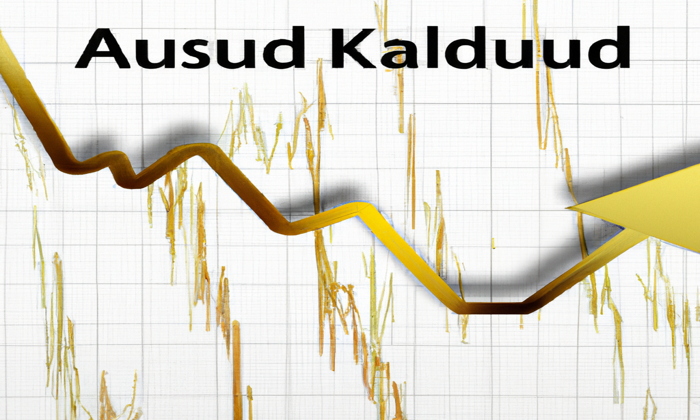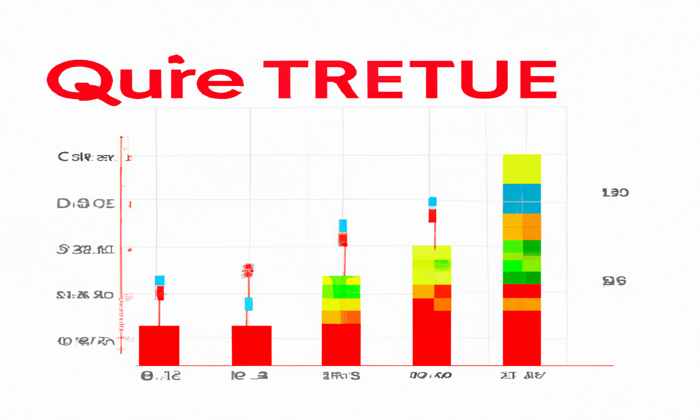Bitcoin ETF inflows have surged to a remarkable three-month high, reflecting a growing interest in cryptocurrency investments amidst heightened tensions between former President Trump and Federal Reserve Chair Jerome Powell. On April 21, the United States witnessed a record inflow of $381.4 million into spot Bitcoin exchange-traded funds (ETFs), driven largely by renewed investor optimism. This staggering increase, more than 250% higher than the previous day’s figures, showcases a notable shift in market dynamics as investors seek safer options amid prevailing market instability. Key players in this influx include ARK 21Shares’ ARKB and Fidelity’s FBTC, which attracted significant capital, highlighting Bitcoin ETFs’ emerging role as pivotal safe haven assets. As investors navigate the uncertain terrain of traditional finance, the positive momentum in Bitcoin ETFs underscores a pivotal transition in the landscape of cryptocurrency investments.
In recent discussions surrounding digital assets, the impressive capital movement into Bitcoin exchange-traded funds signifies a substantial shift in investor sentiment towards these financial instruments. With the backdrop of escalating political and economic tensions, particularly the ongoing discord between Trump and Powell, many market participants are turning their attention to alternative investment vehicles. This uptick in Bitcoin ETF inflows is not merely a reaction to immediate market conditions but also reflects a deeper preference among investors for assets perceived as stable during turbulent times. As traditional market indices face downward pressure, the appeal of cryptocurrency investments has grown significantly, positioning Bitcoin ETFs as attractive options for those looking to safeguard their capital. In an era characterized by financial uncertainty, the rising popularity of these ETFs underscores a critical evolution in investment strategy, emphasizing the need for diversification into digital currencies.
Bitcoin ETF Inflows Reach New Heights
Recent data indicates that Bitcoin ETF inflows in the U.S. have soared to their highest levels in three months, signaling a significant shift in market sentiment. These inflows, totaling $381.4 million, were influenced by a renewed appetite for risk assets, largely prompted by President Trump’s remarks about Federal Reserve Chair Jerome Powell. Investors seem eager to engage with Bitcoin ETFs, which are viewed as a preferable vehicle for cryptocurrency investments, especially amid the instability in traditional financial markets.
This uptick in Bitcoin ETF inflows represents a more than 250% increase from the previous day’s numbers. Prominent funds like ARK 21Shares’ ARKB and Fidelity’s FBTC played pivotal roles, attracting substantial investments. As more institutional investors flock to these ETFs, it suggests a possible long-term trend; enhanced confidence in Bitcoin as a store of value is emerging, paralleling fears surrounding the economy and highlighting Bitcoin’s role as a safe haven asset.
The Impact of Trump and Powell on Cryptocurrency Investments
The ongoing tensions between President Trump and Jerome Powell have undeniably influenced the cryptocurrency landscape, particularly Bitcoin investments. Trump’s vocal criticisms have ignited a wave of volatility, impacting investor decisions as they navigate the intricate interplay of fiscal policy and market performance. With Trump calling for aggressive monetary easing, the response from the cryptocurrency market has been notable, leading to a spike in Bitcoin ETF inflows as investors seek to hedge against potential dollar depreciation.
Investor sentiment appears notably affected by these political tensions, breeding uncertainty within traditional markets. As equities falter, evidenced by a drop in the S&P 500 and Nasdaq, Bitcoin’s stability has drawn renewed attention. This dynamic is reflective of the ongoing shift in investment strategies, where cryptocurrency is increasingly seen as an antidote to potential monetary instability, thus driving more capital into Bitcoin ETFs.
Market Instability and Safe Haven Assets: A Perfect Storm for Bitcoin
Today’s investors are grappling with unprecedented market instability, marked by rising inflation and geopolitical tensions, particularly between the U.S. and China. As this landscape unfolds, many are looking for safe haven assets to protect their capital. Bitcoin, alongside gold, has gained traction as a viable alternative, offering investors a digital shield amidst the turbulence. These macroeconomic pressures have resulted in a marked increase in Bitcoin ETF inflows, illustrating the asset’s growing appeal in uncertain times.
In this context, the recent rally in both Bitcoin and gold prices signals a potential shift in how assets are perceived in relation to traditional markets. With heightened anxiety surrounding the U.S. dollar’s strength and overall economic policy responses, Bitcoin is reaffirming its status as a safe haven asset. Investors are reevaluating their portfolios and aligning with Bitcoin-based products, contributing to the remarkable inflow statistics for Bitcoin ETFs.
Navigating the Cryptocurrency Landscape Amidst Market Fluctuation
The cryptocurrency landscape is anything but stable, with fluctuations often dictated by wider market dynamics. As traditional assets experience downturns, cryptocurrencies, particularly Bitcoin, have shown resilience, gaining favor among investors who are keen to diversify into less correlated markets. This shift is made evident through the renewed interest in Bitcoin ETFs, which have reported substantial inflows, indicating a bright spot for cryptocurrency investments even as other sectors wane.
The contrasting performances of Bitcoin and Ethereum further emphasize this phenomenon. While Bitcoin enjoys increased inflows and price surges, Ethereum struggles with outflows, reflecting how varying investor sentiments can impact different segments of the crypto market. These developments suggest that Bitcoin’s perceived stability and utility as a hedge against inflation make it a prime candidate for institutional investment, particularly in the current economic climate where uncertainty reigns.
The Role of Institutional Investors in Bitcoin ETFs
Institutional investors have emerged as key players influencing the recent Bitcoin ETF inflows. These entities, seeking refuge from market volatility, have increasingly turned to Bitcoin ETFs as a way to gain exposure to the crypto market while mitigating individual asset risks. The notable capital influx into ETFs like ARKB and FBTC underscores a fundamental shift towards acceptance of cryptocurrencies in mainstream finance. As traditional markets flounder, the inclination towards cryptocurrency investments is not merely speculative; it’s a calculated strategy rooted in the search for stability.
The involvement of institutional players also introduces a level of sophistication to the market. Their participation brings regulatory clarity and operational liquidity, encouraging even more investors to consider Bitcoin ETFs as a legitimate asset class. This growing acceptance signifies a pivotal moment for Bitcoin in the financial ecosystem, as institutions become more comfortable allocating resources toward what was once deemed a high-risk investment.
Future Outlook for Bitcoin and its ETFs Amidst Changing Policies
Looking ahead, the future of Bitcoin and its associated ETFs lies heavily in the hands of regulatory policies and the broader economic narrative. The tensions brewing between policymakers like Trump and Powell could significantly shape how investors perceive both traditional and alternative assets moving forward. For Bitcoin, this represents both an opportunity and a challenge; as investors seek secure alternatives during turbulent times, regulatory developments will play a crucial role in determining the asset’s viability in the marketplace.
Moreover, as the narrative around cryptocurrencies evolves, Bitcoin is likely to continue consolidating its status as a safe haven asset. With further institutional adoption on the horizon and ongoing geopolitical uncertainty, Bitcoin ETFs may witness sustained inflows, propelling the asset to new heights. As more investors come to understand the unique value proposition of Bitcoin amidst market instability, its role in portfolios is poised to become increasingly foundational.
Frequently Asked Questions
What are the recent trends in Bitcoin ETF inflows amid Trump-Powell tensions?
Recently, Bitcoin ETF inflows have surged, reaching a three-month high of $381.4 million on April 21, 2025, largely influenced by the tensions between President Trump and Federal Reserve Chair Jerome Powell. This spike marks a significant increase in cryptocurrency investments as investors react to market instability.
How did Trump’s comments about Powell affect Bitcoin ETF inflows?
Trump’s threats to fire Powell sparked a renewed risk-on sentiment, leading to a substantial rise in Bitcoin ETF inflows. His remarks, which fueled concerns over monetary policy shifts, made Bitcoin an attractive option, contributing to the $381.4 million inflows recorded.
Why are Bitcoin ETFs considered a safe haven in times of market instability?
Bitcoin ETFs are viewed as safe haven assets because they provide investors with an opportunity to invest in Bitcoin while mitigating some of the risks associated with direct cryptocurrency investments. In light of ongoing U.S.-China trade tensions and inflation fears, Bitcoin’s resilience has attracted considerable inflows.
What factors are driving the growing interest in Bitcoin ETFs versus Ethereum ETFs?
The recent Bitcoin ETF inflows have outpaced Ethereum counterparts due to a strong recovery sentiment and the perception of Bitcoin as a better store of value amid market instability and geopolitical tensions, whereas Ethereum ETFs have faced outflows, indicating a shift in investor preferences.
How do Bitcoin ETF inflows correlate with overall cryptocurrency market trends?
Increases in Bitcoin ETF inflows often correlate with rising Bitcoin prices and overall market stability in the cryptocurrency sector. As traditional financial systems show volatility, more investors are looking to Bitcoin and Bitcoin ETFs as a hedge against market instability.
What role do institutional investors play in Bitcoin ETF inflows?
Institutional investors have significantly contributed to Bitcoin ETF inflows by demonstrating renewed demand for cryptocurrency investments. Their participation often signals confidence in Bitcoin as a viable alternative asset, particularly during periods of economic uncertainty caused by factors such as Trump-Powell tensions.
How might Bitcoin ETF inflows be affected by future monetary policy changes?
Future changes in monetary policy, especially related to interest rates, can greatly impact Bitcoin ETF inflows. If monetary instability continues, more investors may seek safe haven assets like Bitcoin, potentially leading to stronger inflows into Bitcoin ETFs.
What historical context supports the current rise in Bitcoin ETF inflows?
The current rise in Bitcoin ETF inflows is echoing historical trends where economic uncertainty leads investors to cryptocurrencies. Previous market instability has often resulted in spikes in safe haven asset investments, including Bitcoin.
| Date | Event | Net Inflows (in millions) | Key Players | Market Impact |
|---|---|---|---|---|
| April 21, 2025 | Highest Bitcoin ETF inflows in 3 months | $381.4 | ARKB, FBTC, BITB, IBIT | S&P 500 down 2.4%, Bitcoin up to $88,500, Gold over $3,450 |
| April 22, 2025 | Increased demand for Bitcoin as safe haven | N/A | N/A | Decline in trust towards the U.S. financial system, shift toward crypto and gold |
| April 2025 (Ongoing) | Ethereum ETFs continuing bearish trend | -$25.42 | N/A | Institutional investors’ interest shifting away from Ethereum |
Summary
Bitcoin ETF inflows have surged to new heights following recent political statements that have fueled investor sentiment. The highest daily inflows in three months, totaling $381.4 million, indicate a significant shift towards Bitcoin as a safe haven asset amid economic uncertainty. As traditional financial markets face numerous pressures, including falling equity prices and inflation concerns, Bitcoin’s resilience and appeal as an alternative investment grow stronger. The correlation between Bitcoin, gold, and sentiments regarding the U.S. financial system intensifies, suggesting that Bitcoin ETF inflows may continue to rise as more investors seek security in cryptocurrency.
Bitcoin ETF inflows have surged to a three-month peak, reflecting a renewed enthusiasm for cryptocurrency investments amid the rising tensions between former President Donald Trump and Federal Reserve Chair Jerome Powell. On April 21, 2025, spot Bitcoin exchange-traded funds in the U.S. welcomed a staggering $381.4 million in net inflows, a staggering increase that signals a shift in market sentiment. This trend highlights the growing interest in Bitcoin ETFs as investors perceive them as vital safe haven assets during periods of market instability. The influx of capital not only affects Bitcoin but also underscores the evolving landscape of cryptocurrency investments. As traditional markets face challenges, the appeal of Bitcoin ETFs continues to rise, presenting lucrative opportunities for those looking to diversify their portfolios.
Recent capital flows into Bitcoin-based exchange-traded funds (ETFs) indicate a significant trend in investment behavior, particularly under the influence of political dynamics and economic instability. The heightened inflow of assets into these cryptocurrency funds mirrors a strategic pivot among investors seeking alternative opportunities amidst the backdrop of Trump’s criticisms toward Powell. As confidence in conventional financial systems erodes due to escalating geopolitical tensions and inflationary fears, many investors are turning to digital currencies and their associated ETFs as a refuge. This movement reflects a broader acceptance of digital assets as valuable investments, reinforcing their status as reliable safe haven assets during tumultuous times. Consequently, Bitcoin ETFs stand not only as a financial instrument but also as a beacon of resilience against market fluctuations.














Leave a Reply